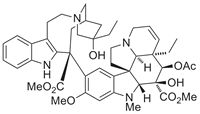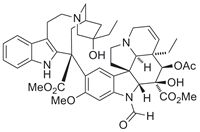At the end of June we made our delayed, but nevertheless fascinating, visit to Thanet Earth which is reported below. Our thanks to Tony Girard for organising this. Later in the month we were also privileged to visit the Runcton Nursery of VHB Herbs which will be reported on next month.
Don't forget our Annual General Meeting which will be held at 14.00 on Friday 21 September, at SCI HQ, Belgrave Square.
Editor
Tomatoes and Cucumbers at Thanet Earth
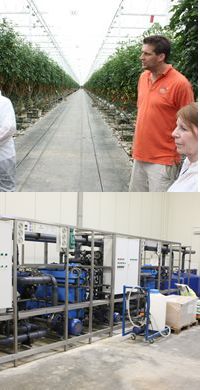
Thanet Earth is a collaborative venture between the Fresca group, who own 50% and three Dutch companies who own the other 50%. Fresca, the umbrella company for a number of growing and marketing companies the largest of which is M&M Mac, provides the packing and marketing for the site. The three grower companies each specialise in the three crops grown; Kaaij Greenhouses specialises in tomatoes and has units in Holland and Spain; A&A is run by two partners who moved their cucumber business from the Westland of Holland to Thanet Earth; and Rainbow Growers Group, a Dutch cooperative, growing and marketing a range of glasshouse crops but specialising in peppers at Thanet Earth.
The site can accommodate seven glasshouses and plans are advanced for the fourth. This will be a shared business with each of the four existing partners taking a 25% stake.
We were greeted by Gert van Straalen (picture upper right) who manages the tomato unit on behalf of Kaaij Greenhouses. He set the scene by outlining the history above and explaining that the primary objective for all three growers was to establish a base to market more easily into the UK. They are somewhat surprised by the attention the project has received for, as he points out, anyone who has visited the Westland of Holland will be very familiar with glasshouse growing on this scale.
He took us into his 10 hectare (25 acre) glasshouse where they grow around ten varieties of speciality tomatoes, many harvested 'on the vine'. They aim to be in production for 52 weeks a year using sodium growing lights to supplement the poor winter light levels. This continuity is achieved through interplanting. The plants are grown in shorter rockwool bags than a typical crop so that new plants can be added not just to the original bag but new bags can be inserted in the gaps between the old.
Two stems are taken from all plants at the propagation stage and additional sideshoots are taken on or stopped during the season to obtain an optimum shoot density for the prevailing light conditions. Coloured string is used to manage this ever-changing shoot density. Additional support wires also enable the older plants to be pulled wider apart to enable an interplanted crop to obtain more light.
A CHP unit provides heat and CO2 to the glasshouse as well as supplying the national grid. Heat storage tanks are also used to balance power supply, heat demand and optimum income from the electricity sold.
We then moved on to A&A run by Addy Breugem and Arjen de Gier. Addy showed us round his glasshouse growing mainly standard slicing cucumbers on high wires; the only UK grower to use such a system.
Here the crop is grown on standard sized rockwool slabs and they do not attempt all year round production. The first crop is planted in mid-December and crops from mid-January to the end of July and the second crop continues until the start of November. This gives enough time for cleaning the glasshouse.
Instead of training the crop up strings, staff clip the stems to rigid wires suspended from the overhead crop wires. These clips are padded with foam rubber to minimise damage to the plant stem, and only two clips are required per plant.
Much of the basic structure was similar to that at Kraaij Greenhouses with a CHP power source and an impressive nutrient mixing and control unit (picture lower right).
Sadly, lack of time prevented us visiting Rainbow Growers peppers and as usual it is only possible in this short article to select just a few of the innovations we saw in our excellent visit. More information including videos can be found at www.thanetearth.com.
Plant of the Month
Asclepias syriaca, common milkweed, butterfly flower, silkweed, silky swallow-wort, Virginia silkweed, Apocynaceae
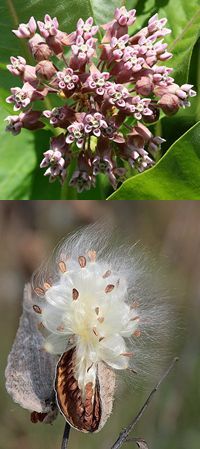
The seeds are attached to long, white flossy hairs and encased in large follicles. The plant has also been explored for commercial use of its bast (inner bark) fibre which is both strong and soft. The United States Department of Agriculture studies in the 1890s and 1940s found that milkweed has more potential for commercial processing than any other indigenous bast fibre plant, with estimated yields as high as hemp and quality as good as flax.
The seeds contain quantities of cinnamic acid, which is a very good sunscreen. The plants latex contains large quantities of poisonous glycosides which are toxic to most mammals. This plant is a host for Monarch butterflies, which are immune to the toxicity, but the poisonous chemicals are stored in their bodies making them toxic to birds such as jays.
Alison Foster
Oxford Botanic
Garden
Medicinal Plant of the Month
Catharanthus roseus, Madagascar periwinkle, Apocynaceae

No anti-diabetic activity was found but it was observed that the test animals suffered from depleted white blood cell levels. This suggested that the plant could have potential as an anti-cancer agent and so the search began for the active constituent(s). The two main chemicals responsible for the activity were identified as vincristine (left) and vinblastine (right), and these two drugs have since been rigorously tested and proven to be very effective.
Vincristine was approved by the FDA in 1963. Both molecules work by inhibiting the assembly of microtubule structures which arrests the cell cycle in the metaphase. These drugs are important components of many chemotherapy regimes. Vincristine is especially important for the treatment of childhood leukaemia. The chemical structures are very complicated and, although total synthesis has been achieved in the laboratory, it is not a commercially viable process. Even though the plants only contain very small quantities of the chemicals, they are farmed commercially in places such as Texas, USA in order to extract the chemicals. Vincristine makes up 0.0003% of the dry weight of the plant with vinblastine more abundant at 0.01%. Fortunately vinblastine can be transformed into vincristine by chemical transformation.
Alison Foster
Oxford Botanic
Garden
News from our Associates
Commercial
Horticultural Association

Grow
Careers


The Society of Biology has made a response to the Department for Education's
consultation on Career Guidance. This supports the concentration on 14-18
year olds, is undecided on the value of extending it to 12-14 years olds, but
is strongly in favour of extending career advice well beyond 18.
Horticulture Industry News
For the very latest horticultural news follow us on Facebook and or
Twitter.
Green
walls cut pollution cost effectively

Green light for Irish GM potatoes
The Irish Environmental Protection Agency (EPA) has given the go-ahead for
a genetically modified blight-resistant potato crop to be tested on lands
in Co Carlow. Two hectares will be planted over the next four years to assess
how the GM potatoes cope with less fungicidal spray than conventional varieties. The
agency said scientists will continue to monitor the land, run by Teagasc,
at Oak Park in the county, for four years after the trial. Opponents of GM
now have a three month window to lodge a judicial review of the licence. More
Sinclair expands green waste growing media production
Lincoln-based horticultural supplier William Sinclair is to increase its manufacturing
capacity and reduce its cost base following the purchase of a new production
site in Cheshire for £4.75m. The new site, two miles from the motorway
network near Ellesmere Port, includes 41 acres of freehold land with approximately
380,000 sq ft of industrial buildings. William Sinclair said it anticipated
a phased occupation of the new site, as it expanded its operations into new
areas including increasing production levels of peat free product SuperFyba.
Other group operations would be transferred over the next five years.
Legumes give bacteria a special access pass
A 120-year debate on how nitrogen-fixing bacteria are able to breach the cell
walls of legumes has been settled. John Innes Centre (JIC) scientists now
report that plants themselves allow the bacteria in. Whether the bacteria
breach the cell walls by producing enzymes that degrade it, or the plant does
the work for them, has been contested since an 1887 paper in which the importance
of the breach was first recognised. 'Our results are so clear we can
unequivocally say that the plant supplies enzymes to break down its own cell
walls and allow bacteria access,' said JIC's Professor Allan Downie.
US carrot giant Bolthouse Farms sold to Campbells for a billion pounds
Campbells, best known in this country for its soups, is to buy natural foods
maker Bolthouse Farms in a $1.55 billion cash deal. Campbells says Bolthouse's
line of juices will complement its 'V8' beverage unit, and Bolthouse's
packaged carrots will deepen its healthy snack offerings. Campbells wants to
strengthen its presence in the refrigerated sections of supermarkets. Most
of its products are currently found in the centre aisles, where shelf-stable
items are sold. CEO Denise Morrison said the Bolthouse deal will help Campbells
court the generation known as Millennials more aggressively. Millennials are particularly
drawn to healthy and on-the-go foods, but have largely eluded Campbells.
Two-thirds now support GM crop testing
Public opinion appears to be shifting in favour of the development of genetically-modified
crops, according to a ComRes survey for The Independent. Asked whether the
Government should encourage experiments on GM crops so that farmers can reduce
the amount of pesticides they use, 64% of the public agreed and 27% disagreed, with 9% 'don't knows'. There
was a significant gender gap, with women more cautious about
the trials than men. While 70% of men believe that such experiments
should be encouraged, only 58% of women agree. More
No risk with GMO food, says EU chief scientific advisor
Genetically modified organisms (GMOs) are no riskier than their conventionally
farmed equivalents, the European Commission's Chief Scientific Advisor
Anne Glover has said and called for countries impeding GMO use to be put to
proof. 'There is no substantiated case of any adverse impact on human
health, animal health or environmental health, so that's pretty robust
evidence, and I would be confident in saying that there is no more risk in
eating GMO food than eating conventionally-farmed food.' More
Biorenewables Development Centre set to study non-food plant use
A new Biorenewables Development Centre was officially opened by the Rt Hon
Dr Vince Cable MP, Secretary of State for Business, Industry and Skills at
the University of York. This will provide a world-class scale-up facility
that allows York researchers to test the most promising processes for converting
renewables into chemicals and materials. In this way they can prove a new
process and/or produce enough product for detailed commercial analysis and
assessment for example, by an interested company. More
An new idea for affordable therapeutic drugs
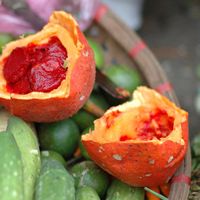
Researchers from the Australia and USA discovered the genes that produce MCoTI-2. 'Knowing how these genes, which we named TIPTOP, manufacture MCoTI-2 naturally in gac could allow us to co-opt this process and use it to grow protein-based drugs in plants,' Dr Mylne from the University of Queensland said. 'We've already moved the system to seeds of the model plant Arabidopsis, where it worked remarkably well.'
Researchers find tobacco protein enhances crop immune systems
A Japanese study has found a component in tobacco that makes crop immune systems
more resistant to viral attacks. Although crops have a general defence mechanism
in order to fight against viruses, their invaders counteract this defence
by suppressing the plant immune response. Evidence from recent studies implies
that plants have developed an additional set of countermeasures to combat
the virus's immune suppression tactics. In order to examine how plants
do this, the researchers set out to find the mechanisms involved.
They found rgs-CaM, otherwise known as 'tobacco calmodulin-like protein', a calcium-binding messenger protein. In tobacco this protein binds to the viral (RNA interference) suppressors (molecules produced by the virus that chemically counteract the plants' own defences) and inhibits the virus from impeding the plant's defences. These findings have the potential to enhance the immune systems for crops that are vulnerable to pesticide-resistant viruses.
Are organic tomatoes better for your health?
A Spanish study has shown that the organic tomatoes contained higher levels
of polyphenols than the non-organic tomatoes. Reporting these findings the
NHS notes 'this study suggests that some organic tomatoes contain higher
levels of polyphenols than 'conventionally grown'
tomatoes. It does not, however, tell us whether eating organic tomatoes will
provide any additional health benefits over eating conventional tomatoes.
Nobody ate the tomatoes, so no health outcomes could be measured.'
UV enhances vitamin-D in mushrooms
A new commercial processing technology is suitable for boosting the vitamin
D content of mushrooms and has no adverse effects on other nutrients, the
first study on the topic has concluded. The technology, which involves exposing
mushrooms to ultraviolet light, can greatly boost mushrooms' vitamin D content.
Although few people realise it, mushrooms are an excellent natural source of vitamin D. Scientist set out to answer several questions about commercial-scale UV light processing of mushrooms. They compared button mushrooms exposed to UVB light, those exposed to natural sunlight and those kept in the dark. The UVB-exposed mushrooms got a dramatic boost in vitamin D (700% more of the vitamin than mushrooms not exposed to light) and the UVB processing had no effect on levels of vitamin C, folate, riboflavin, niacin and a host of other essential nutrients.
Bayer purchases of AgraQuest
Bayer CropScience announced today that it has signed an agreement to purchase
California-based AgraQuest, Inc. for a purchase price of $425m (approximately
€340 million) plus milestone payments. AgraQuest is a global supplier of
innovative biological pest management solutions based on natural microorganisms.
Bayer CropScience hopes this acquisition will
help it build a leading technology platform for green products and strengthen
its strategically important fruits and vegetables business, while also opening
new opportunities in other crops and markets.
Glyphosate-Resistant plants may be less susceptible to diseases
Most laboratory tests done to understand glyphosate resistance are done in
sterile soil, void of any soil microbes. Research now shows that those microbes
may play a significant role in how glyphosate affects plants. Giant ragweed
(Ambrosia trifida), horseweed (Conyza canadensis) and common
lambsquarter (Chenopodium album) in both sterile soil and field soil
and subjected them to glyphosate.
In each soil, strains of weeds both susceptible and resistant to glyphosate were tested. Both versions of giant ragweed were damaged more from the glyphosate in field soil. The susceptible version of common lambsquarter was also more heavily damaged in field soil.
Horseweed fared the same no matter which soil or strain - susceptible or resistant. The results show that microbes can play an important role in the activity of glyphosate, presumably by invading the glyphosate-weakened plants. The results also suggest that glyphosate-resistant weeds may be more resistant to disease pressure as well. More
Ladybirds thrive on organic aphids
Ladybird larvae that eat prey raised on organically-grown crops are more likely
to survive than those eating aphids raised on crops grown with conventional
fertiliser, a new experiment shows. Ladybird larvae fed on organically-raised
aphids were ten per cent more likely to make it to adulthood - a difference
that could end up making a big impact on their populations, if it turns out
to hold true on farms. The researchers say 'This is just a preliminary study,
but we've shown that a simple change of fertiliser in a single crop plant
can produce a significant difference to ladybird mortality,'
Events Calendar
Other Events of Interest
Potatoes
in Practice
9 Aug, James Hutton Institute
Dundee, UK
Plantarium
24 - 27 Aug,
Boskoop, The Netherlands
Amenity
Arboriculture Conference
2 - 5 Sep, Arboricutural Association
Reading, UK
Ornamental
Breeding Worldwide
2 - 5 Sep, International Society for Horticultural Science
Warsaw, Poland
Physics
meets Biology
3 - 5 Sep, Society of Biology
Oxford, UK
Four Oaks
Trade Show
4 - 5 Sep
Lower Withington, UK
Saltex
4 - 6 Sep, Institute of Groundsmanship
Windsor, UK
International
Chestnut Symposium
4 - 8 Sep, International Society for Horticultural Science
Shepherdstown, USA
International People
Plant Symposium
6 - 8 Sep, International Society for Horticultural Science
Venlo, The Netherlands
International
Humulus Symposium
9 - 14 Sep, International Society for Horticultural Science
Zatec, Czech Republic
European Microscopy
Congress
16 - 21 Sep, European Microscopy Society
Manchester, UK
GLEE
17 - 19 Sep, i2i Events Group
Birmingham, UK
Postharvest Research,
Education, and Extension
18 - 20 Sep, International Society for Horticultural Science
Bogor, Indonesia
Natural
Products and Biocontrol
19 - 21 Sep, International Biocontrol Manufacturers Association
Perpignan, France
Biological Plant
Protection as the Basis of Agricultural Ecosystem Stabilization
25 - 27 Sep,
Krasnodar, Russia
Olive Growing
25 - 29 Sep, International Society for Horticultural Science
San Juan, Argentina
Macfruit
26 - 28 Sep, Cesena Fiera
Cesena, Italy
South West Growers Show
3 Oct, South West Growers
Exeter, UK
Precision
Farming for Crop Protection
3 Oct, Association of Applied Biologists
Harper Adams, UK
Biopesticide
Market Opportunities
5 Oct, University of Greenwich and Natural Resources Institute
Greenwich, UK
Integrated
Fruit Production
7 - 12 Oct, International Organisation for Biological and
Integrated Control of Noxious Animals and Plants
Kusadasi, Turkey
Acrylamide,
furans and other food-borne contaminants
8 - 9 Oct, Association of Applied Biologists
Munich, Germany
Above
Ground - Below Ground Interactions
8 - 10 Oct, British Ecological Society, Biochemical Society
and Society for Experimental Biology
London, UK
Medicinal
and Nutraceutical Plants
14 - 19 Oct, International Society for Horticultural Science
Aracaju, Brazil
Light in Horticultural
Systems
15 - 18 Oct, International Society for Horticultural Science
Wageningen, The Netherlands
Advances
in Biological Control and IPM
16 - 19 Oct, Association of Applied Biologists
Marston, UK
Postharvest Quality
of Ornamental Plants
16 - 19 Oct, International Society for Horticultural Science
Porto de Galinhas, Brazil
Vegetables and Greens
16 - 20 Oct, International Society for Horticultural Science
Yerevan, Armenia
National
Fruit Show
17 - 18 Oct, Marden Fruit Show Society
Marden, UK
International
Symposium on Persimmon
20 - 26 Oct, International Society for Horticultural Science
Guilin City, China
Annual Biocontrol
Industry Meeting
22 - 24 Oct, International Biocontrol Manufacturers Association
Lucerne, Switzerland
Saffron Biology
and Technology
22 - 24 Oct, International Biocontrol Manufacturers Association
Srinagar, India
BCPCWeed Review 2012
24 Oct, British Crop Protection Council
Peterborough, UK
Horti Fair
30 Oct - 2 Nov
Amsterdam, The Netherlands
CropWorld Global
6 - 8 Nov, British Crop Protection Council
London, UK
Human Health Effects
of Fruits and Vegetables
6 - 10 Nov, International Society for Horticultural Science
Dharwad, India
Brassica 2012
12 - 16 Nov, International Society for Horticultural Science
Catania, Italy
Soil &
Water Live
13 Nov, Royal Agricultural Society of England
Stoneleigh, UK
Scientific Horticulture
13 - 14 Nov, Slovak University of Agriculture
Nitra, Slovakia
Interpoma
15 - 17 Nov, Fiera Bolzano
Bolzano, Italy
Biomolecular
Thermodynamics
16 - 17 Nov, Institute of Physics Biological Physics Group
London, UK
Citrus
Congress
18 - 23 Nov, International Society for Horticultural Science
Valencia, Spain
Biostimulants
26 - 29 Nov, International Society for Horticultural Science
Strasbourg, France
Crop
Protection in Southern Britain
27 - 27 Nov, Association of Applied Biologists
Peterborough, UK
If you would like to advertise a forthcoming event please contact charne.green@soci.org
Horticulture Group Contact Details
For submitting ideas or to volunteer to be part of a committee or a group, please contact:
Chairman - Peter Grimbly
Meetings Secretary - Alison Foster
Minutes Secretary - Margaret Waddy
Newsletter co-ordinator - Sue Grimbly scihortigroup@btinternet.com
Group Contact - Charne Green charne.green@soci.org T: +44 (0)20 7598 1594

